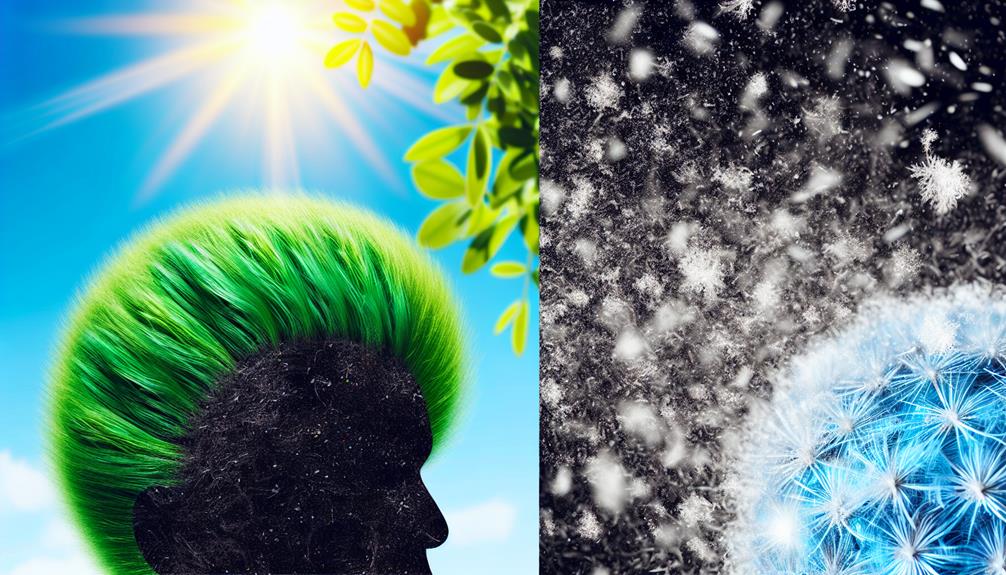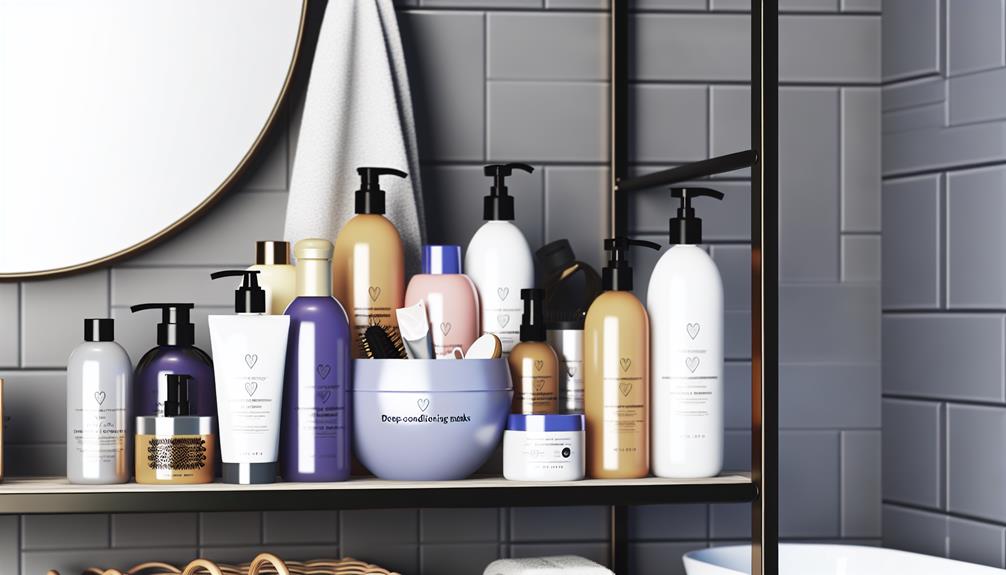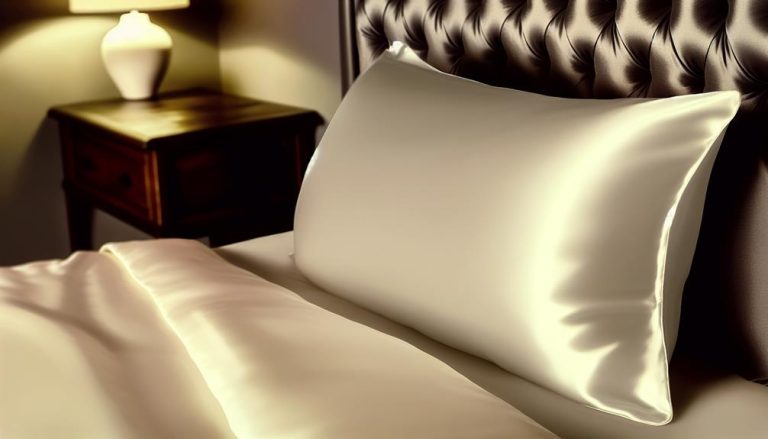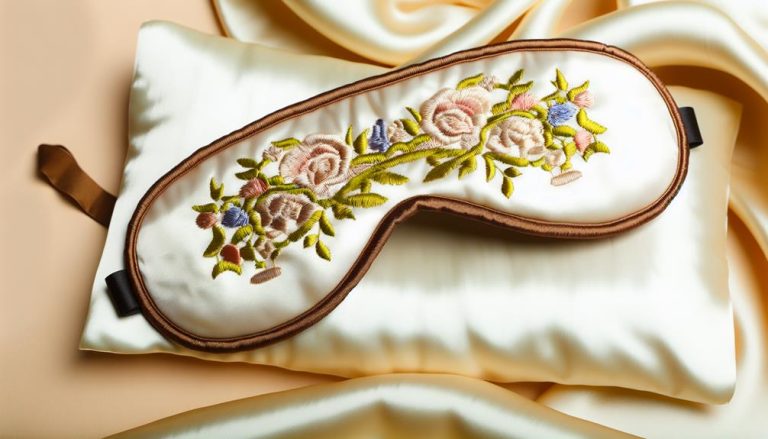As the winter season approaches, keeping our hair healthy faces a battle against the elements. On one hand, we have the cold, dry air that threatens to strip our locks of moisture, leaving them dull and lifeless. On the other hand, we have the desire to keep our hair healthy and hydrated, exuding a luscious radiance that withstands the harsh winter conditions.
But fear not, for we have six essential tips that will help us conquer this challenge and maintain our hair’s vitality throughout the winter months. From nourishing treatments to protecting against environmental factors, these tips are the key to unlocking the secret of healthy, hydrated hair.
So, let’s dive into this hair care journey together and discover the path to winter hair bliss.
Impact of Winter on Hair Hydration

During the winter months, our hair faces a significant challenge when it comes to maintaining hydration. The cold, dry air causes our hair cuticles to lift, leading to moisture loss and dehydrated strands. This is worsened by heat styling and harsh chemicals, which further damage our hair, making it frizzy and fried.
It doesn’t matter if we’ve fine hair, straight hair, curly hair, or any other hair type, we all need to consider moisture retention in winter. Lack of hydration can result in dull, brittle, and lifeless hair. Even the winter weather, with its snow and wind, can contribute to hair damage.
Tips for hair healthy Hydration
To keep your hair hydrated during the winter months, here are some essential tips to follow.
- Incorporate hair treatments with hydrating ingredients such as coconut oil, aloe vera, or olive oil. These natural remedies penetrate the hair shaft, providing deep hydration and nourishment.
- Make sure to allow your wet hair to air dry completely before using hot styling tools to minimize damage.
- Deep condition your hair once a week and use hair masks to keep it hydrated and healthy.
- Consider professional hot oil treatments or purchase hydrating shampoos and conditioners for added moisture.
- Try overnight moisturizing hair treatments or leave-in conditioners for prolonged hydration.
Hair Hydration Products

Here are some hair hydration products that can help you maintain hair healthy , moisturized hair throughout the winter season:
- Hydration mask: A deep conditioning treatment that provides intense moisture to nourish and hydrate your hair. Apply it once a week for best results.
- Deep conditioner: A rich and creamy formula that penetrates the hair shaft to restore moisture and strengthen your locks. Use it regularly to keep your hair hydrated and prevent dryness.
- Oil-based hydration treatments: Coconut, aloe, or avocado oil can be used as natural hydrating treatments. These oils help to seal in moisture and keep your hair soft and smooth.
- Leave-in conditioner: A lightweight formula that can be applied to damp or dry hair to provide continuous hydration throughout the day. It helps to detangle, reduce frizz, and protect your hair from environmental damage.
With these hair hydration products, you can combat the effects of dry winter air and keep your hair healthy, hydrated and beautiful.
Avoiding Heat Tools on Damp Hair
As we continue our journey to maintaining hair healthy , moisturized throughout the winter season, let’s now turn our attention to the importance of avoiding heat tools on damp hair. Heat tools, such as blow dryers and curling irons, can cause breakage and frizz when used on wet or damp hair. To help you understand the potential damage, let’s take a look at the table below:
| Heat Tools on Damp Hair | Potential Damage |
|---|---|
| Blow Dryers | Breakage |
| Curling Irons | Frizz |
Instead of relying on heat tools, opt for air drying or unheated rollers for a gentler approach. It’s crucial to wait for your hair to dry completely before using any heat tools and always remember to use a heat protectant spray. By limiting heat styling and allowing your hair time to recover, you can prevent further damage and reduce frizz. Liberating your hair from the constant heat will help it stay healthy, hydrated, and full of life throughout the winter season.
Reducing Hair Washing Frequency
Reducing the frequency of hair washing can have numerous benefits for maintaining healthy, moisturized hair during the winter season. Here are four reasons why you should consider washing your hair less often:
- Retaining natural oils: Washing your hair every day can strip away the natural oils that keep your hair hydrated. By washing less frequently, you allow these oils to nourish and protect your strands, preventing dryness.
- Balancing the scalp: Using oils or hydrating treatments can rebalance your scalp, reducing oiliness. When your hair is properly hydrated, your scalp produces less sebum, resulting in less greasy hair.
- Preventing damage: Overwashing can lead to dryness and breakage. By reducing hair washing frequency, you give your hair a chance to recover and prevent further damage caused by excessive manipulation and exposure to harsh chemicals.
- Improving overall hydration: Drinking more water and consuming nutrient-rich foods like eggs, berries, fatty fish, and nuts can improve hair hydration from the inside out. Hydrated hair is less prone to damage and maintains its health and shine.
Protecting Hair From Environmental Factors
To protect our hair from the damaging effects of winter weather, we can take several proactive measures.
Winter weather, including sun rays and dry air, can wreak havoc on our hair, making it dry, brittle, and prone to breakage.
One way to shield our locks from these environmental factors is by using scarves or hats to minimize exposure to harsh elements. By covering our heads, we can prevent our hair from becoming damaged by the cold, dry air and harmful UV rays.
Additionally, braiding or tying our hair up can help prevent it from blowing around and getting tangled, reducing the risk of breakage.
Another tip is to consider using a silk pillowcase. Silk is less absorbent than cotton, helping to retain our hair’s natural oils and hydration, promoting healthier, more vibrant locks.
Frequently Asked Questions
How Often Should I Use a Hair Mask During the Winter?
During the winter, it’s important to keep our hair hydrated. One way to do this is by using a hair mask. Hair masks provide deep conditioning and nourishment, helping to combat dryness and damage caused by the cold weather.
The frequency of using a hair mask in winter depends on your hair type and its needs. Generally, using a hair mask once a week can help maintain moisture and keep your hair healthy and hydrated throughout the season.
Can Using Hot Styling Tools on Wet Hair Cause Permanent Damage?
Using hot styling tools on wet hair can indeed cause permanent damage. The heat from the tools can cause the water in the hair shaft to boil, leading to bubble formation and hair breakage.
It’s best to wait for your hair to dry completely before using heat styling tools. To protect your hair from damage, opt for air drying or use unheated rollers instead.
Remember to always use a heat protectant spray when using heat tools on dry hair to minimize the risk of permanent damage.
Are There Any Natural Remedies for Hydrating Hair Besides Coconut Oil and Aloe Vera?
Yes, there are several natural remedies for hydrating hair besides coconut oil and aloe vera.
Some options include olive oil, avocado oil, argan oil, and shea butter. These ingredients are rich in nutrients and fatty acids that can nourish and moisturize the hair.
Additionally, using honey, yogurt, or banana as hair masks can help restore hydration.
These natural remedies can be easily incorporated into your hair care routine to keep your hair healthy and hydrated throughout the winter.
What Should I Look for in a Hydrating Shampoo and Conditioner?
When looking for a hydrating shampoo and conditioner, we should consider ingredients that provide moisture and nourishment to the hair. Look for products that contain hydrating ingredients like coconut oil, aloe vera, or argan oil.
These ingredients help to replenish and lock in moisture, keeping the hair hydrated and healthy. Avoid products with harsh chemicals that can strip the hair of its natural oils. Opt for sulfate-free formulas that are gentle and won’t further dry out the hair.
How Long Should I Wait for My Hair to Dry Before Using Heat Tools?
We should wait until our hair is completely dry before using heat tools to prevent damage. Wet hair is more prone to breakage and frizz when exposed to heat. It’s best to air dry or use unheated rollers instead of blow dryers or curling irons.
If we can’t wait, we should use a heat protectant spray and ensure our hair is dry to the touch. Waiting for our hair to dry fully allows it to recover and reduces the risk of further damage.
Conclusion
In conclusion, by following these essential tips for keeping our hair healthy and hydrated during the winter, we can combat the challenges of moisture loss, frizz, and damage.
With the use of nourishing treatments, deep conditioners, and hydrating shampoos and conditioners, we can ensure that our hair remains luscious and hydrated.
Additionally, by avoiding heat tools on damp hair, reducing hair washing frequency, and protecting our hair from environmental factors, we can maintain beautiful and vibrant locks all season long.





